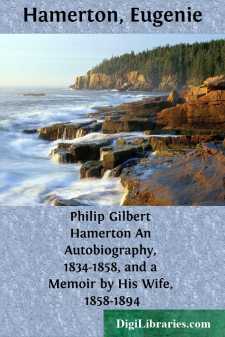Categories
- Antiques & Collectibles 13
- Architecture 36
- Art 48
- Bibles 22
- Biography & Autobiography 815
- Body, Mind & Spirit 144
- Business & Economics 28
- Children's Books 18
- Children's Fiction 14
- Computers 4
- Cooking 94
- Crafts & Hobbies 4
- Drama 346
- Education 58
- Family & Relationships 59
- Fiction 11833
- Games 19
- Gardening 17
- Health & Fitness 34
- History 1378
- House & Home 1
- Humor 147
- Juvenile Fiction 1873
- Juvenile Nonfiction 202
- Language Arts & Disciplines 89
- Law 16
- Literary Collections 686
- Literary Criticism 179
- Mathematics 13
- Medical 41
- Music 40
- Nature 179
- Non-Classifiable 1768
- Performing Arts 7
- Periodicals 1453
- Philosophy 65
- Photography 2
- Poetry 896
- Political Science 203
- Psychology 44
- Reference 154
- Religion 515
- Science 126
- Self-Help 85
- Social Science 82
- Sports & Recreation 34
- Study Aids 3
- Technology & Engineering 59
- Transportation 23
- Travel 463
- True Crime 29
Our website is made possible by displaying online advertisements to our visitors.
Please consider supporting us by disabling your ad blocker.
Philip Gilbert Hamerton An Autobiography, 1834-1858, and a Memoir by His Wife, 1858-1894
by: Eugenie Hamerton
Description:
Excerpt
CHAPTER I.
My reasons for writing an autobiography.—That a man knows the history of his own life better than a biographer can know it.—Frankness and reserve.—The contemplation of death.
My principal reasons for writing an autobiography are because I am the only person in the world who knows enough about my history to give a truthful account of it, and because I dread the possibility of falling into the hands of some writer who might attempt a biography with inadequate materials. I have already been selected as a subject by two or three biographers with very friendly intentions, but their friendliness did not always ensure accuracy. When the materials are not supplied in abundance, a writer will eke them out with conjectural expressions which he only intends as an amplification, yet which may contain germs of error to be in their turn amplified by some other writer, and made more extensively erroneous.
It has frequently been said that an autobiography must of necessity be an untrue representation of its subject, as no man can judge himself correctly. If it is intended to imply that somebody else, having a much slighter acquaintance with the man whose life is to be narrated, would produce a more truthful book, one may be permitted to doubt the validity of the inference. Thousands of facts are known to a man himself with reference to his career, and a multitude of determinant motives, which are not known even to his most intimate friends, still less to the stranger who so often undertakes the biography. The reader of an autobiography has this additional advantage, that the writer must be unconsciously revealing himself all along, merely by his way of telling things.
With regard to the great question of frankness and reserve, I hold that the reader has a fair claim to hear the truth, as a biography is not avowedly a romance, but at the same time that it is right to maintain a certain reserve. My rule shall be to say nothing that can hurt the living, and the memory of the dead shall be dealt with as tenderly as may be compatible with a truthful account of the influences that have impelled me in one direction or another.
I have all the more kindly feelings towards the dead, that when these pages appear I shall be one of themselves, and therefore unable to defend my own memory as they are unable to defend theirs.
The notion of being a dead man is not entirely displeasing to me. If the dead are defenceless, they have this compensating advantage, that nobody can inflict upon them any sensible injury; and in beginning a book which is not to see the light until I am lying comfortably in my grave, with six feet of earth above me to deaden the noises of the upper world, I feel quite a new kind of security, and write with a more complete freedom from anxiety about the quality of the work than has been usual at the beginning of other manuscripts.
Nevertheless, the clear and steady contemplation of death (I have been looking the grim king in the face for the last hour) may produce a paralyzing effect upon a man by making his life's work seem very small to him....


